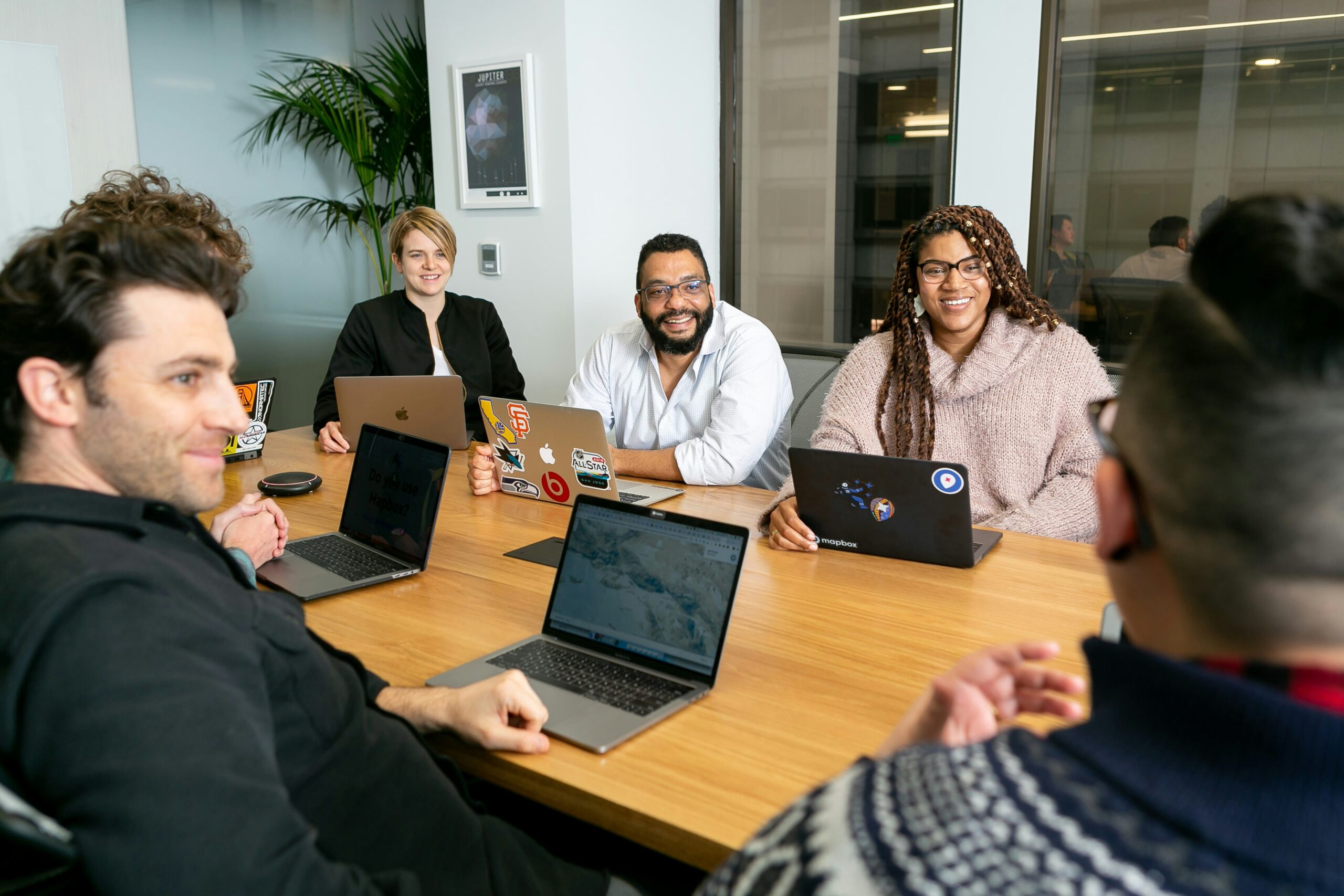Networking has been a game changer in my career journey. I have found that building real connections not only opens doors to new job opportunities but also enriches my personal and professional life.
In this post, I want to share how connecting with the right people helped me overcome challenges and achieve career milestones.
I’ll talk about why networking matters, how to build a genuine network, and some practical tips to make the process fun and rewarding.
The Value of Real Connections
Over the years, I learned that most job openings aren’t found through traditional job boards but come from connections. According to a LinkedIn survey, up to 85% of positions are filled through networking and referrals. This shows how important it is to get to know people in your field.
For me, networking isn’t just about collecting contacts—it’s about creating a circle of trusted peers, mentors, and even friends who share ideas and support one another.
When I started focusing on networking, I discovered that opportunities can come from the most unexpected places.
Just Before You Go
Empower individuals to overcome barriers, gain essential skills, and secure gainful employment through our proven programs—KeelMaster, KeelWings, and KeelMate. Your support can spark change and build brighter futures.
Donate NowReal connections can lead to:
- Mentorship: Guidance from someone who has walked the path before can help you avoid common pitfalls.
- Job Leads: Many companies prefer to hire people who come recommended by someone they trust.
- Learning Experiences: Conversations with peers can reveal industry trends and practical tips that no textbook can teach.
The truth is, your network is your net worth. While this might sound like a buzz phrase, it really is about how valuable and supportive a strong network can be in shaping your career.
Steps to Build Your Network
Starting to network can feel daunting, especially if you’re new to the idea. I began by taking small steps, and here’s what worked for me:
1. Identify People You Admire
I made a list of professionals in my field whose work I respected. This list wasn’t just about big names—it included peers, colleagues, and even individuals I’d met briefly at events. Knowing who inspires you can help guide your outreach.
2. Attend Local and Online Events
I found that getting out of my comfort zone made a huge difference. Local meetups, industry conferences, and even virtual webinars provided chances to meet new people.
These events create an environment where it’s easier to strike up a conversation. Look for events on platforms like Eventbrite or professional groups on LinkedIn.
3. Engage in Online Communities
I joined groups on LinkedIn and other social platforms dedicated to my industry. These groups are great for sharing ideas, asking questions, and learning from others.
By participating in discussions and commenting on posts, I gradually built a reputation as someone genuinely interested in the field.
4. Volunteer Your Time
Offering your skills or time for a project can naturally introduce you to like-minded people. I volunteered at community events and industry conferences, and this not only helped me learn new things but also allowed me to connect with professionals who shared the same interests.
5. Reach Out for One-on-One Meetings
Sometimes, a quick coffee chat or a virtual meeting can make a big difference. I make sure to reach out with a personal message instead of a generic request. A message that explains why I admire their work or how I think we could benefit from a conversation goes a long way.
Tips for Meaningful Networking
Over time, I realized that effective networking is more about quality than quantity. Here are some tips that have helped me build and sustain meaningful connections:
Be Genuine and Curious
I always try to focus on the person in front of me rather than thinking about what I can get from them. Asking thoughtful questions and really listening can set the stage for a lasting relationship.
Follow Up Thoughtfully
After meeting someone, I send a short message thanking them for their time. I might mention a part of our conversation that stood out or share an article related to our discussion. This extra step shows that I value the connection.
Offer Help and Share Resources
I believe in the idea of give-and-take. If I come across an article, book, or tool that might help one of my contacts, I don’t hesitate to share it. This habit has helped me build a reputation as someone who adds value to others’ lives.
Use Social Media Wisely
LinkedIn has been a key tool in my networking toolkit. I send personalized connection requests and actively engage with posts from people in my network.
This isn’t about spamming your feed; it’s about genuine interactions. Platforms like Twitter or industry-specific forums can also be valuable if used thoughtfully.
Consistency is Key
Networking isn’t a one-off activity. I make a point to check in with people regularly. Even a brief message once every few months can remind someone that you’re thinking of them. Maintaining this kind of consistency helps keep the relationship alive over the long term.
How to Make the Most of Networking Events
I’ve learned that events and conferences offer unique networking opportunities. Here are some pointers that helped me make the most out of these events:
Do Some Homework
Before attending an event, I spend a little time researching the speakers and attendees. This way, I know who I might want to talk to, and it gives me a starting point for conversations.
Arrive with an Open Mind
Not every conversation will turn into a lasting relationship, and that’s okay. I try to focus on learning something new with each interaction. Even a brief chat can sometimes lead to surprising opportunities later on.
Exchange Contact Details
A business card or a quick exchange on LinkedIn is important. I always try to follow up after the event, mentioning something specific from our conversation. This helps me stay memorable and sets the stage for future interactions.
Embrace the Unexpected
Sometimes, the most interesting connections come from unexpected encounters. I remind myself to be open and friendly, even if I feel a bit out of my element.
Keeping Your Network Strong
Networking doesn’t end when an event is over or after the initial conversation. It’s about nurturing the relationships over time. Here’s how I keep my network strong:
Regular Check-Ins
I set reminders to reach out to a few contacts every month. This might be as simple as sending an email to see how they’re doing or sharing an interesting article that made me think of them.
Celebrate Milestones
I make sure to congratulate my contacts on their achievements—whether it’s a new job, a promotion, or any personal milestone. These small gestures show that I care and value our relationship.
Share Your Own Journey
Networking is a two-way street. I share updates about my own career progress and challenges. This openness encourages others to share their experiences too, creating a mutual learning environment.
Offer Your Help
If someone in my network is facing a challenge or looking for advice, I do my best to offer support. Sometimes, even connecting them with another professional can make a big difference.
Frequently Asked Questions
What is networking?
Networking is the process of creating and maintaining professional relationships that can offer guidance, support, and opportunities. It’s more about building genuine connections than just handing out business cards.
How do I start networking if I’m new to this?
Begin by joining local meetups or online groups related to your field. I started with small steps, like participating in discussions on LinkedIn and attending local events. Remember, it’s about making one meaningful connection at a time.
How often should I follow up with someone I meet?
I find that a check-in every few months works well. If you’ve had a significant conversation or shared a special connection, consider reaching out sooner. The key is to keep the interaction natural and genuine.
What if I feel nervous about meeting new people?
I used to feel the same way. Start small by engaging in online conversations or one-on-one chats. As you become more comfortable, you can gradually join larger events. It takes time, but with practice, the process becomes more natural.
Additional Resources
If you’re looking for more guidance on building your network, here are a few resources that have helped me along the way:
- LinkedIn Career Advice: Explore articles and tips on how to enhance your professional network on LinkedIn.
- Harvard Business Review on Networking: Check out insightful articles on networking strategies at Harvard Business Review.
- Books: Never Eat Alone by Keith Ferrazzi offers a treasure trove of practical networking advice.
- Online Courses: Platforms like Coursera and LinkedIn Learning have courses on building professional relationships that might interest you.
In Conclusion
My journey has shown me that the strength of your network can have a lasting impact on your career growth.
I have learned that networking is not about quick fixes but about creating real, lasting relationships that support you in your career. The process may feel challenging at first, but each small step builds toward something much greater.
I hope my experiences and tips inspire you to take action and build a network that truly supports your growth. How do you plan to start connecting with people who can help you achieve your career goals?
Just Before You Go
Empower individuals to overcome barriers, gain essential skills, and secure gainful employment through our proven programs—KeelMaster, KeelWings, and KeelMate. Your support can spark change and build brighter futures.
Donate Now


